
When Millie Smith and Lewis Cann found out they were expecting a baby, they were overjoyed. As there was a history of twins in Millie’s family, she had a strong feeling that she was going to give birth to two little ones, and her instincts were right. The ultrasound confirmed that she was indeed expecting twins, but the doctors told them that one of the babies had a very small chance of survival.
ragically, one of their daughters was born at 30 weeks with anencephaly, a serious condition that affects the development of the brain and spinal cord. They learned that their precious baby had only moments or hours to live.
Knowing this, Millie and Lewis wanted to give her a name before they said goodbye. They chose the name Skye. Millie explained: “We felt she needed a name before she arrived. Knowing she wouldn’t be with us for long, I wanted her to have a name in those fleeting moments”.
The name “Skye” symbolized a connection to a place they could always remember when they looked up to the sky. “We held Skye close as she died. It was the most heartbreaking moment of our lives, but I’m proud that she fought to spend that time with us.” Skye only lived for three hours, a brief time filled with love while her parents cherished her beauty and presence.

After her death, Millie and Lewis were supported by a “bereavement midwife” and given access to a “Daisy Room”, a special room where parents could spend time with their baby before and after death. However, after Skye was gone, her memory seemed to fade; no one spoke of her, leaving Millie feeling like her daughter had never existed, which made her angry.
“Most of the nurses knew what had happened, but as the weeks went by, people stopped mentioning Skye. Other families around me had no idea about our loss”, Millie recalls.

While her other daughter, Callie, was still in the NICU, another mother who knew nothing about Millie’s situation remarked how lucky she was not to have twins. “None of the other parents knew about Skye, and that innocent comment almost broke me. I left the room in tears but didn’t have the heart to explain”, Millie said. “A simple sticker could have prevented this.”
This experience inspired Millie to design a sticker for incubators to mark the loss of one or more babies in a multiple birth. She chose butterflies to symbolise the ‘flown away’ babies and used the colour purple, which is suitable for any gender.
From this idea grew the Skye High Foundation, which promotes the Purple Butterflies initiative and helps raise awareness in hospitals around the world. The foundation also offers a range of purple butterfly merchandise.
“Although I can’t prevent these situations from occurring, I believe the more support we can provide through initiatives like the stickers, the better it will be for others who suffer this loss. It’s an incredibly tough journey”, said Millie. Today, her surviving daughter Callie is seven years old.
I Took Our Old Couch to the Dump, but My Husband Freaked Out, Yelling, “You Threw Away the Plan?!”
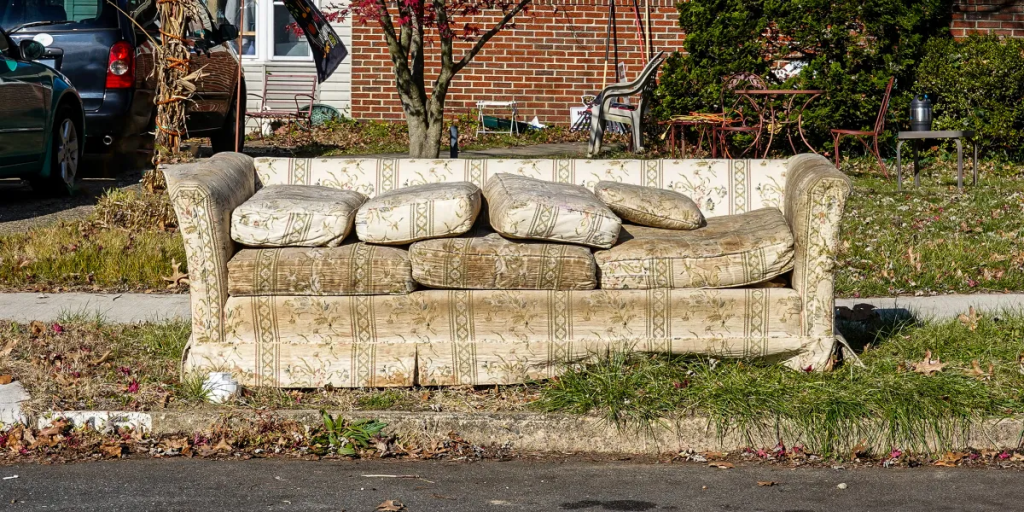
When Tom’s eyes locked onto the empty space in our living room, a look of pure panic spread across his face. “Please tell me you didn’t…” he started, but it was already too late.
I’d been asking Tom to get rid of that old couch for months. “Tom,” I’d say, “when are you taking the couch out? It’s practically falling apart!”
“Tomorrow,” he’d mumble without looking up from his phone. Or sometimes, “Next weekend. I swear, this time for real.”
Spoiler alert: tomorrow never came.
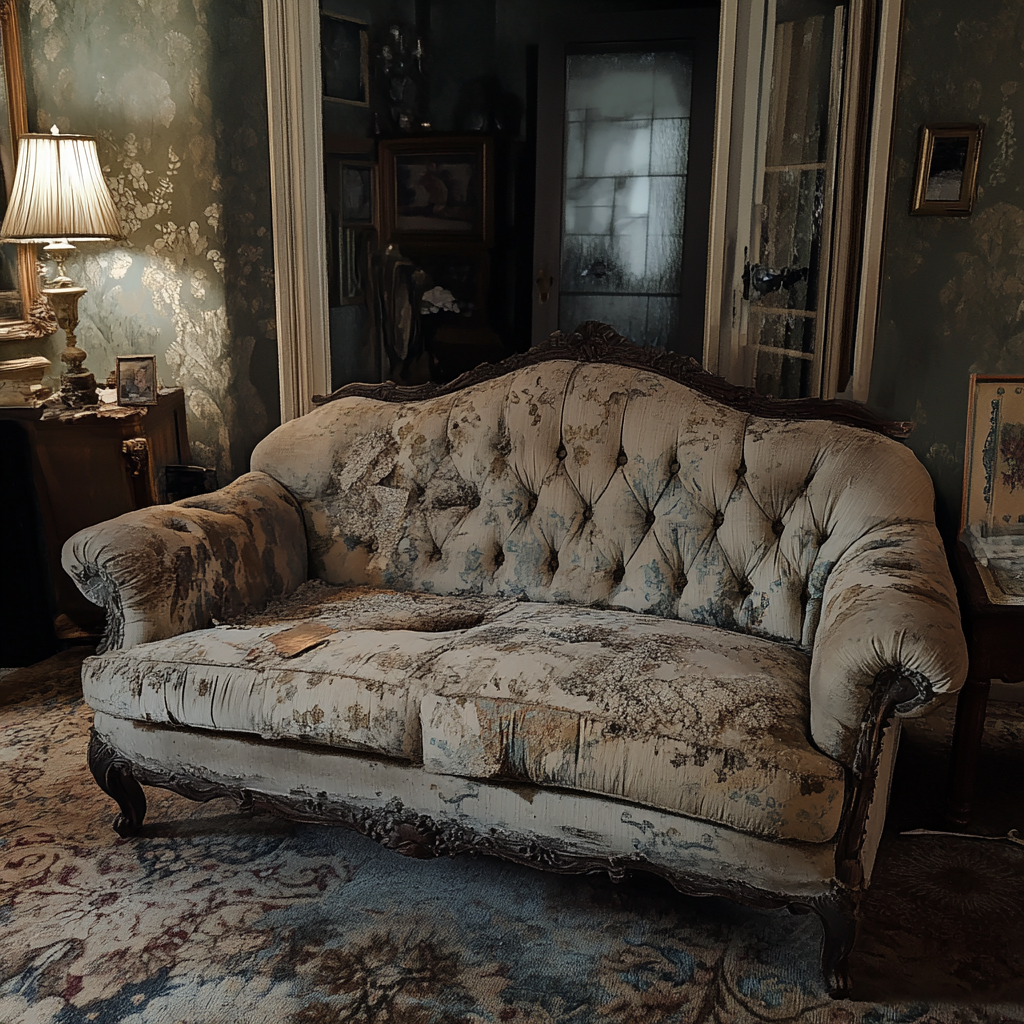
Old worn out couch | Source: Midjourney
So, last Saturday, after watching that moldy piece of furniture use up half of our living room for another week, I finally snapped. I rented a truck, wrangled the thing out by myself, and took it straight to the dump. By the time I got back, I was pretty proud of myself.
When Tom got home later, he barely got past the entryway before his eyes went wide at the sight of the brand-new couch I’d bought. For a second, I thought he’d thank me, or at least smile.
But instead, he looked around, stunned. “Wait… what’s this?”

Man standing in his living room | Source: Midjourney
I smiled, gesturing at the couch. “Surprise! Finally got rid of that eyesore. It looks great, right?”
His face went pale, and he stared at me like I’d committed a crime. “You took the old couch… to the dump?”
“Well, yeah,” I said, taken aback. “You said you’d do it for months, Tom. It was disgusting!”
He gaped at me, panic flashing across his face. “Are you serious? You threw away the plan?!“
“What plan?” I asked.
He took a shaky breath, muttering to himself. “No, no, no… This isn’t happening. This can’t be happening.“
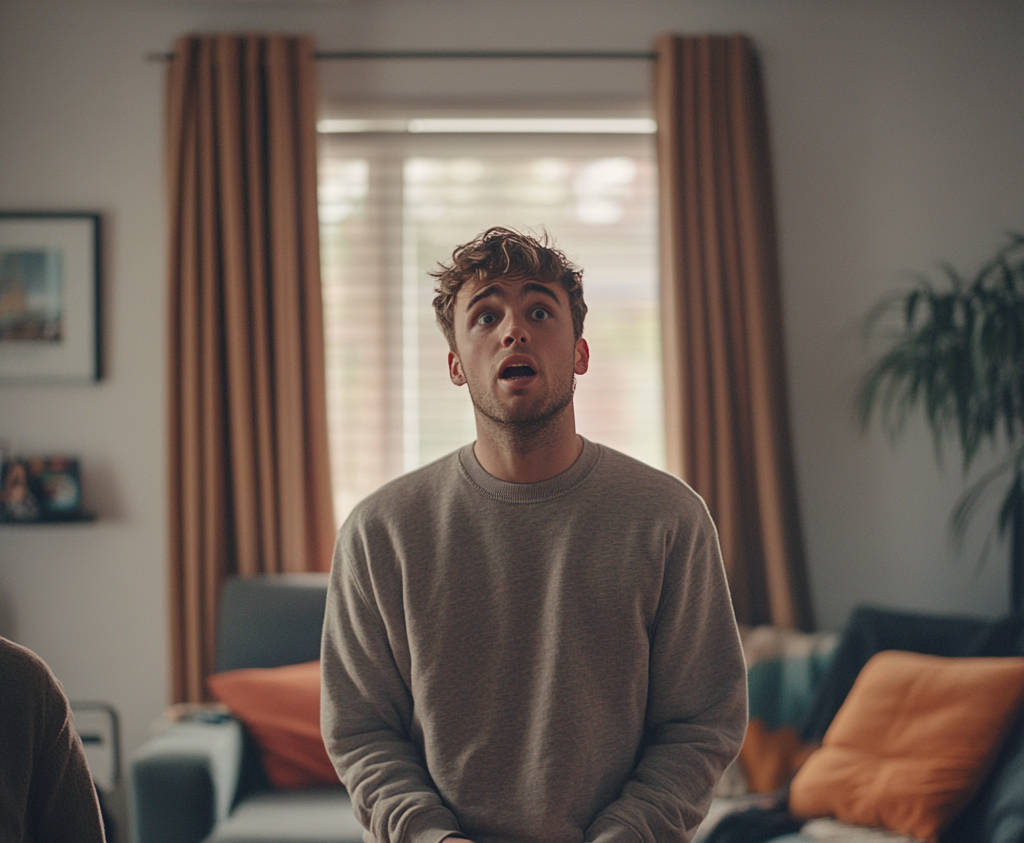
Disappointed man in his living room | Source: Midjourney
“Tom!” I interrupted, starting to feel a little panicked myself. “What are you talking about?”
He looked up at me, eyes wide with fear. “I… I don’t have time to explain. Get your shoes. We have to go. Now.”
My stomach twisted as I stood there, trying to understand. “Go? Where are we going?”
“To the dump!” he snapped, heading for the door. “We have to get it back before it’s too late.”
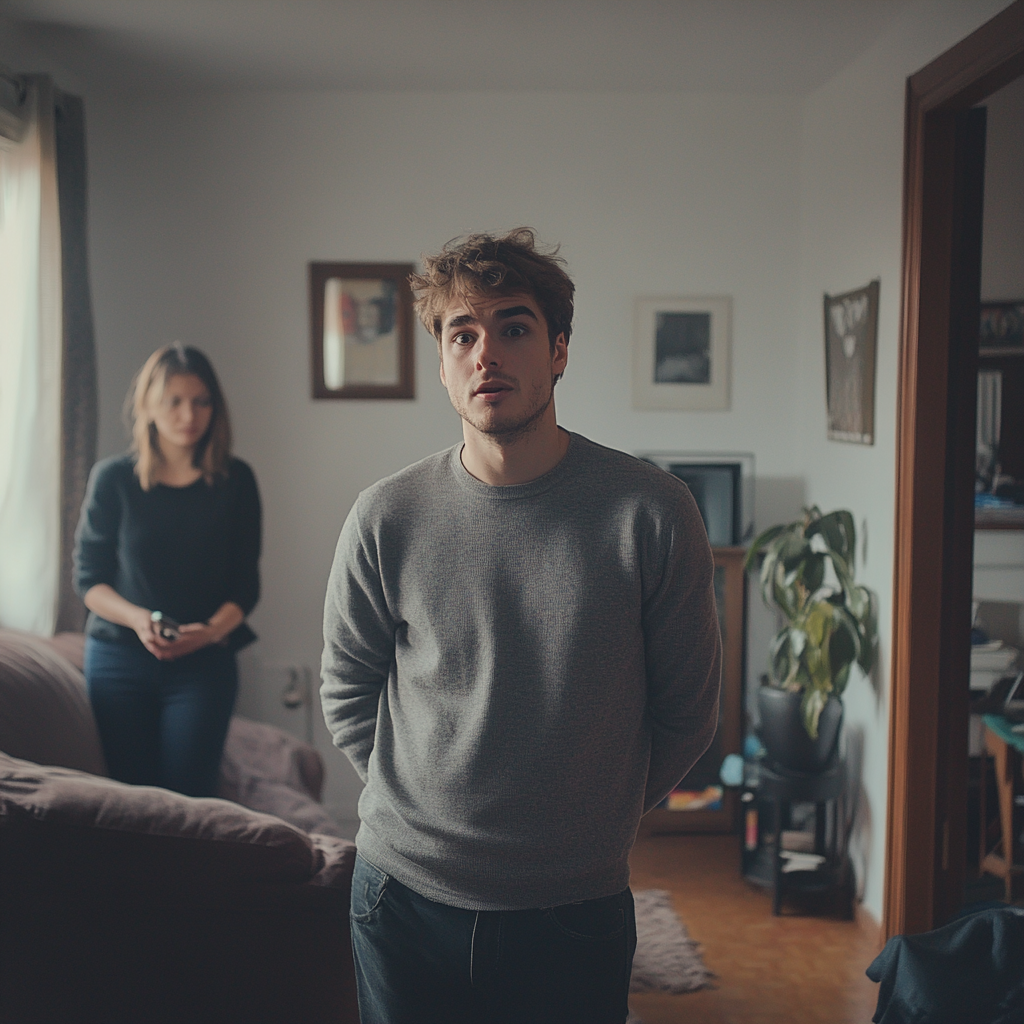
Couple heading out | Source: Midjourney
“Too late for what?” I followed him, bewildered. “Tom, it’s a couch. A couch with, like, mold and broken springs! What could be so important?”
He paused at the door, turning back, “You wouldn’t believe me if I told you.”
“Try me,” I challenged, crossing my arms. “I’d like to know why you’re so desperate to dig through a pile of garbage for a couch.”
“I’ll explain on the way. Just trust me,” he said, gripping the doorknob and glancing back over his shoulder. “You have to trust me, okay?”
The way he looked at me — it sent a chill down my spine.
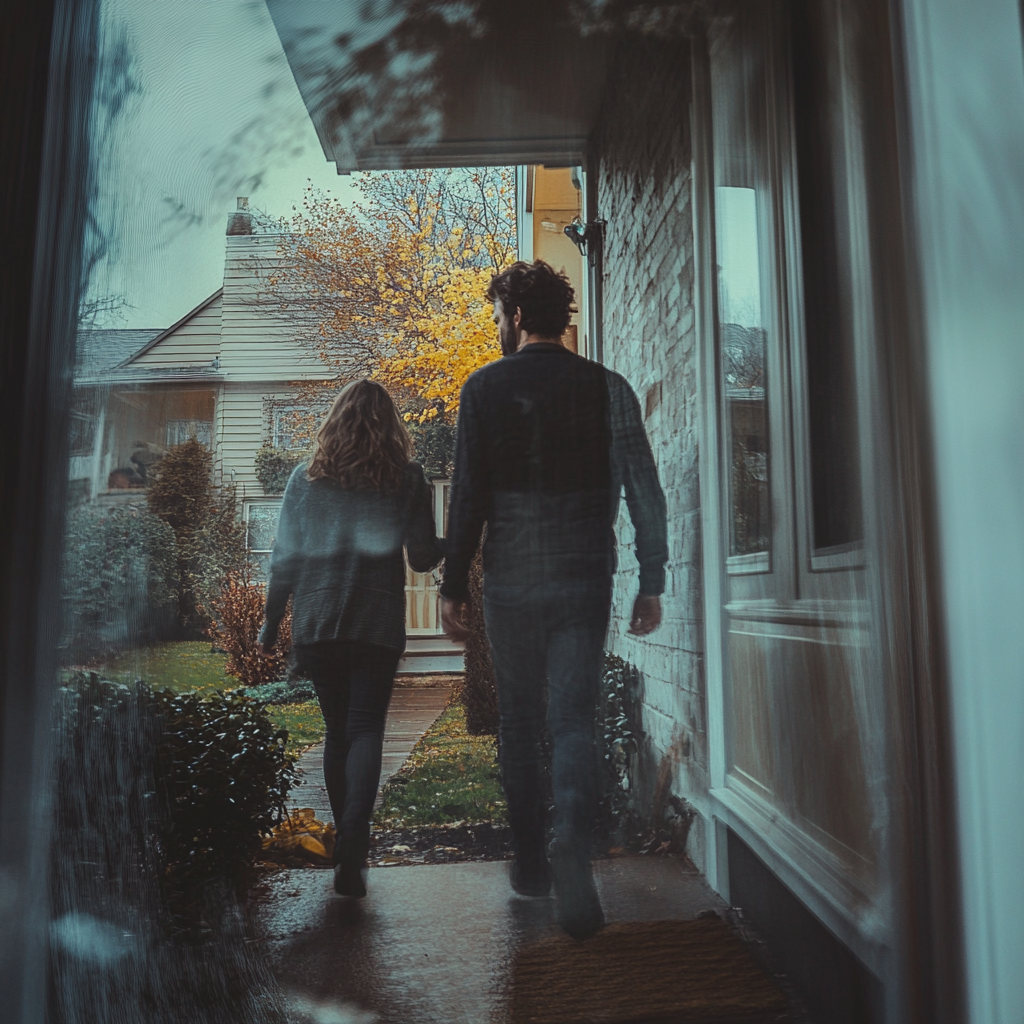
A couple leaving their house | Source: Midjourney
The drive to the dump was dead silent. I kept glancing at Tom, but he was laser-focused on the road, his hands gripping the steering wheel so tight. I’d never seen him like this, so completely panicked, and his silence was only making it worse.
“Tom,” I finally broke the silence, but he didn’t even flinch. “Can you just… tell me what’s going on?”
He shook his head, barely looking at me. “You’ll see when we get there.”
“See what?” I pressed, the frustration creeping into my voice. “Do you have any idea how insane this sounds? You dragged me out here for a couch. A couch, Tom!”

Couple in their car | Source: Midjourney
“I know, he muttered, eyes flicking over to me for a split second before returning to the road. “I know it sounds crazy, but you’ll understand when we find it.”
I crossed my arms, stewing in silence until we pulled up to the dump. Tom leaped out before I could say another word, sprinting toward the gate like his life depended on it.
He waved down one of the workers and, with a pleading edge in his voice, asked, “Please. My wife brought something here earlier. I need to get it back. It’s really important.”
The worker raised an eyebrow, glancing between us with a skeptical look, but something in Tom’s face must have convinced him. With a sigh, he let in. “All right, buddy. But you better move quick.”

Dumpsite | Source: Pexels
Tom darted ahead, searching the mountain of trash like a man possessed, his eyes scanning every heap as if they held priceless treasures. I felt ridiculous standing there, ankle-deep in the garbage, watching my husband dig through piles of discarded junk.
After what felt like ages, Tom’s head jerked up, eyes wide. “There!” he shouted, pointing. He scrambled over, practically throwing himself onto our old couch, which was lying sideways on the edge of a heap. Without missing a beat, he flipped it over, his hands diving into a small gap in the torn lining.

Man in a dumpsite standing next to an old couch | Source: Midjourney
“Tom, what—” I began, but then I saw him pull out a crumpled, yellowed piece of paper, delicate and worn with age. It looked like nothing—just a flimsy old paper with faded, uneven handwriting. I stared at it, completely baffled.
“This?” I asked, incredulous. “All this… for that?”
But then I looked at his face. He was staring at that paper like it was the answer to everything.
Tom’s hands were shaking, his eyes red and brimming with tears. I was frozen, unsure of what to do or say. In the five years we’d been together, I’d never seen him like this — so utterly broken, clutching that crumpled piece of paper like it was the most precious thing he’d ever held.

Man seated on an old couch reading a paper | Source: Midjourney
He took a deep breath, staring at the paper with an expression that was equal parts relief and sorrow. “This… this is the plan my brother and I made,” he finally said, his voice raw. “It’s our map of the house. Our… hideouts.”
I blinked, glancing at the paper he was holding so carefully. From here, it just looked like a scrap of faded, childlike scrawls. But when he held it out to me, his face crumbling as he handed it over, I took it and looked closer.

Woman standing next to an old couch in a dumpsite | Source: Midjourney
It was drawn in colored pencils, with wobbly handwriting and a little cartoonish map of rooms and spaces, was a layout of the house we lived in now. Labels dotted the rooms: “Tom’s Hideout” under the stairs, “Jason’s Castle” in the attic, and “Spy Base” by a bush in the backyard.
“Jason was my younger brother,” he murmured, barely able to get the words out. “We used to hide this map in the couch, like… it was our ‘safe spot.'” His voice was almost inaudible, lost in a memory that seemed to consume him.
I stared at him, struggling to piece together this revelation. Tom had never mentioned a brother before — not once.

Emotional woman talking to her husband | Source: Midjourney
He swallowed hard, his gaze somewhere far away. “When Jason was eight… there was an accident in the backyard. We were playing a game we made up.” He choked back a sob, and I could see how much it was costing him to go on. “I was supposed to be watching him, but I got distracted.”
My hand flew to my mouth, the weight of his words crashing down on me.
“He was climbing a tree… the one next to our Spy Base,” he said, a faint, bitter smile tugging at his lips. “He… he slipped. Fell from the top.”
“Oh, Tom…” I whispered, my own voice breaking. I reached out to him, but he seemed lost in the past.

Man and wife in a dumpsite | Source: Midjourney
“I blamed myself,” he continued, his voice breaking. “I still do, every day. That map… it’s all I have left of him. All the little hideouts we made together. It’s… it’s the last piece of him.” He wiped his face with his sleeve, but the tears kept coming.
I wrapped my arms around him, pulling him close, feeling his pain in every sob that shook his body. It wasn’t just a couch. It was his link to a childhood he’d lost—and to a brother he could never bring back.
“Tom, I had no idea. I’m so sorry,” I said, hugging him tight.

Couple hugging in a dumpsite | Source: Midjourney
He took a shaky breath, wiping at his face. “It’s not your fault. I should have told you… but I didn’t want to remember how I messed up. Losing him… it felt like something I couldn’t ever put right.” His voice caught, and he closed his eyes for a long, silent moment.
Finally, he let out a long, steadying breath and gave a weak, almost embarrassed smile. “Come on. Let’s go home.”
The drive back was quiet, but a different kind of quiet. There was a lightness between us, as though we’d managed to bring something precious back with us, even if it was only a scrap of paper. For the first time, I felt like I understood this hidden part of him, the one he’d kept buried under years of silence.
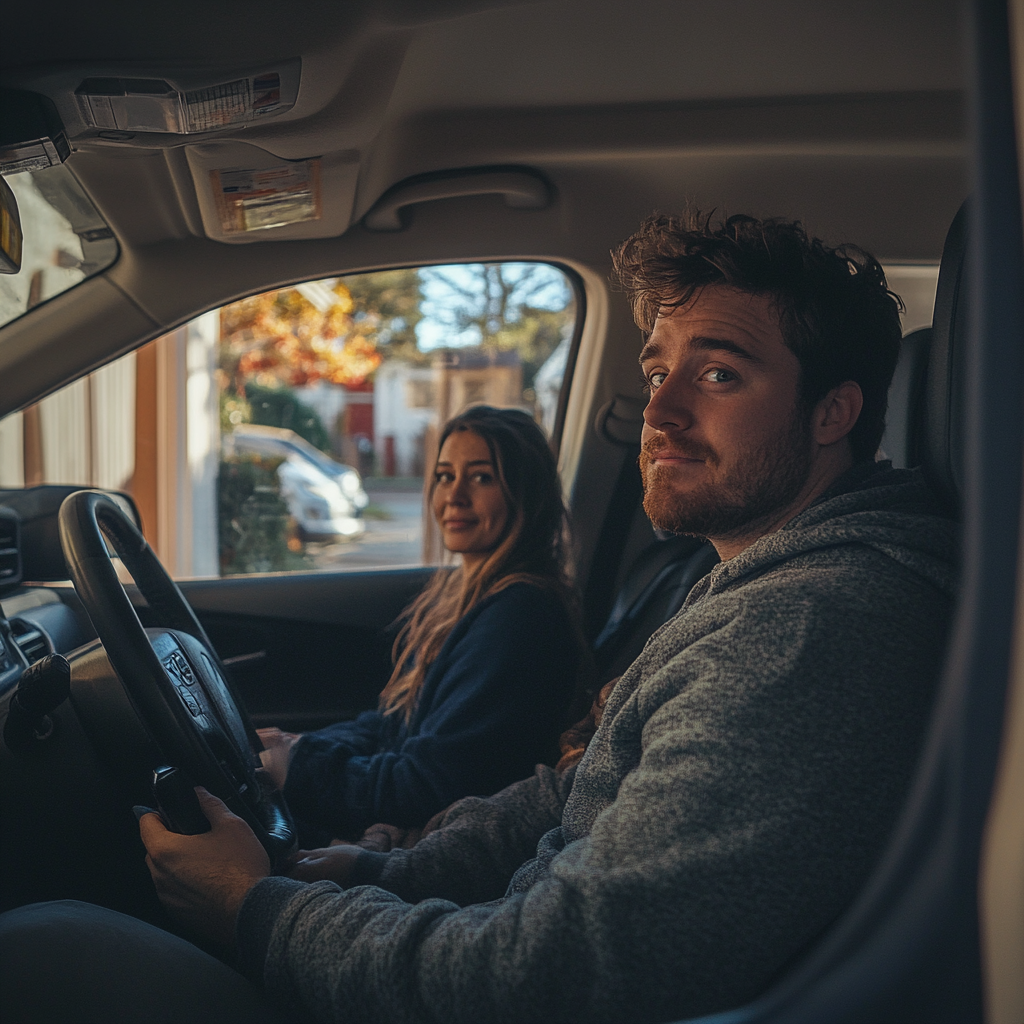
Couple in a car | Source: Midjourney
That night, we took that yellowed, wrinkled map and placed it in a small frame, hanging it in the living room where we could both see it. Tom stood back, looking at it with something that wasn’t quite sorrowful anymore.
The shadow was still there, but softer somehow. I watched him, noticing for the first time in years that he seemed at peace.
Time passed, and the house was filled with new memories and little echoes of laughter that seemed to bring warmth to every corner.
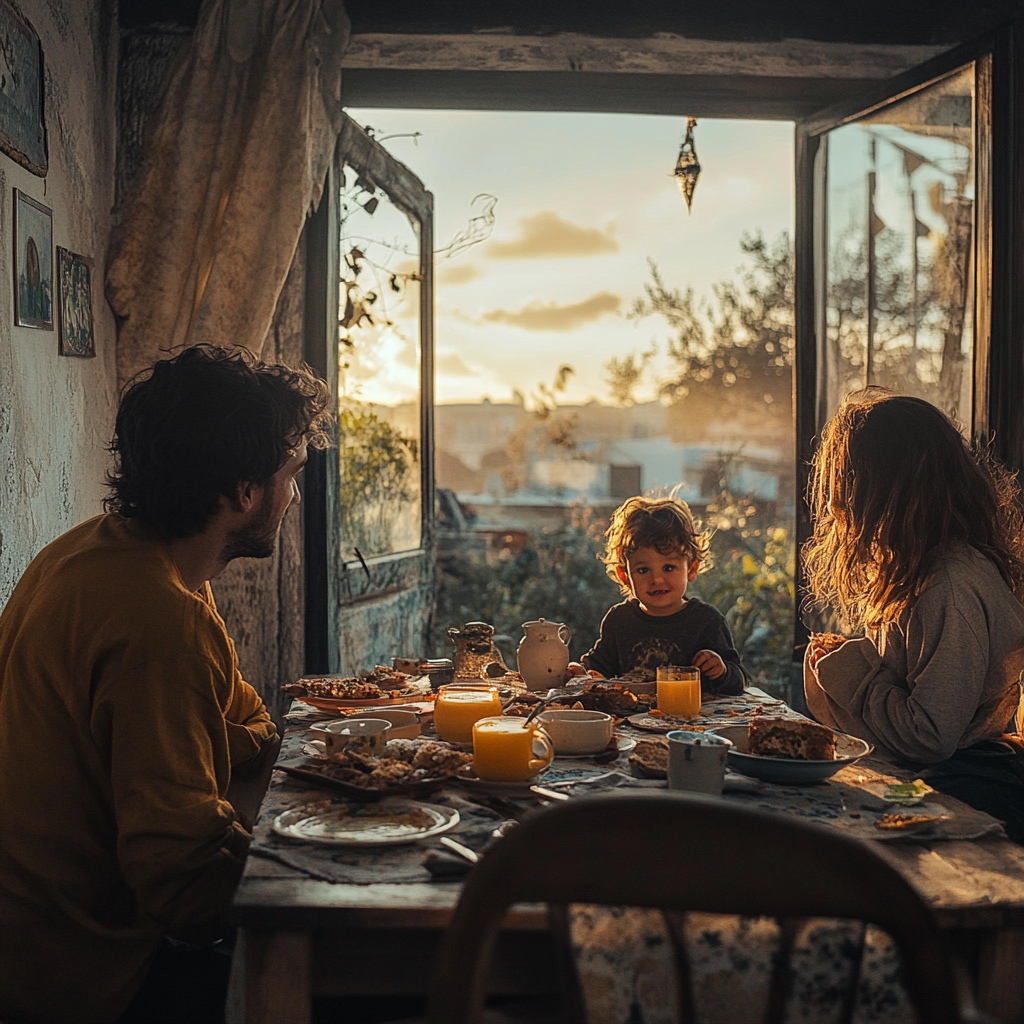
Young family having breakfast | Source: Midjourney
A few years later, when our kids were old enough to understand, Tom sat them down, holding the framed map as he shared the story of the hideouts and “safe spots” he and Jason had created. I stood in the doorway, watching the kids’ eyes widen with wonder, drawn into this secret part of their father’s life.
One afternoon, I found the kids sprawled on the living room floor, crayons and pencils scattered around as they drew their own “map.” They looked up when they saw me, grinning with excitement.

Kids playing with crayons | Source: Midjourney
“Look, Mom! We have our own house map!” my son shouted, holding up their masterpiece. It was labeled with their own hideouts — Secret Lair in the closet, Dragon’s Lair in the basement.
Tom came over, his eyes shining as he looked at their creation. He knelt beside them, tracing the lines with a soft smile, as if they’d unknowingly given him back another small piece of what he’d lost.
“Looks like you’re carrying on the tradition,” he said, his voice full of warmth.
Our son looked up at him, his eyes bright. “Yeah, Dad. It’s our plan… just like yours.”
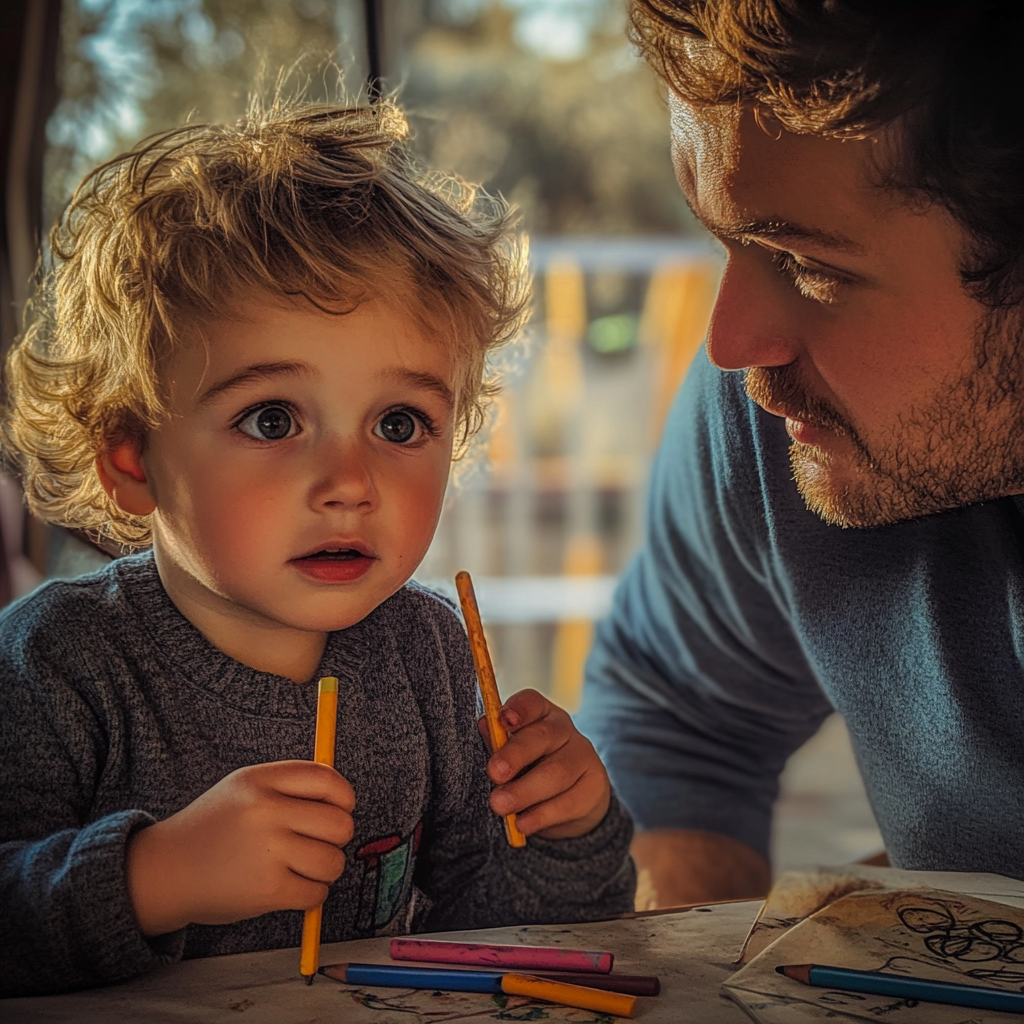
Man looking at his son | Source: Midjourney



Leave a Reply